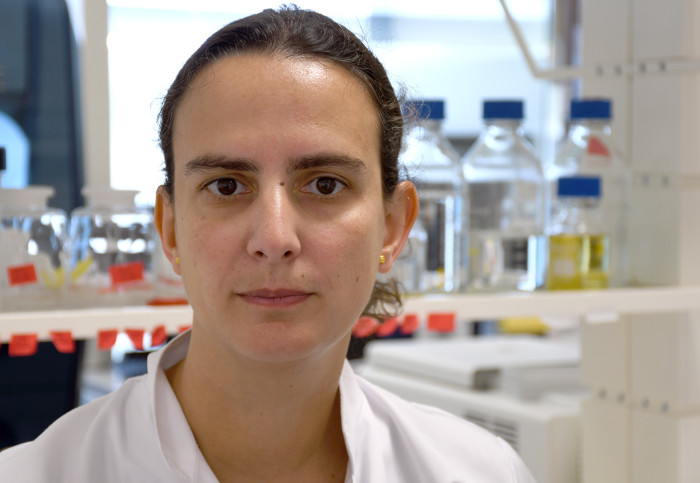Introducing Dr Ana Eulalio - our new Reader in Cellular Microbiology
by Emily Govan

Dr Ana Eulalio
We interviewed Dr Ana Eulalio, our new Reader in Cellular Microbiology who joined us in January.
Can you tell me a little about your background?
I studied Biochemistry and did my PhD at the University of Coimbra, in Portugal, one of the world's oldest Universities and a UNESCO Heritage Site. After my PhD, I did postdoctoral work at the Max-Planck Institute for Developmental Biology and Max-Planck Institute for Infection Biology in Germany, and also at the International Centre for Genetic Engineering and Biotechnology, in Italy. During the PhD and postdocs, I worked in various aspects of host-pathogen interactions, RNA biology, post-transcriptional gene regulation, and high-throughput functional screening. I then established my independent research group at the University of Würzburg, in Germany in 2012, and moved to the Center for Neuroscience and Cell Biology at the University of Coimbra in Portugal in 2017, and in January this year I joined Imperial.
Can you tell us a bit about your study prior to now?
The research of my group is focused on studying various aspects of the interaction between host cells and bacterial pathogens, including Salmonella Typhimurium, Shigella flexneri, and Staphylococcus aureus. The work we develop is aimed at understanding the role of microRNAs in infection, the identification and characterization of novel host and bacterial factors, and the impact of bacterial intracellular lifestyles in antibiotic treatment. To achieve this, we apply a combination of unbiased, genome-wide systems biology approaches, including RNA-sequencing and high-throughput functional screenings, with molecular and cellular biology approaches.
What is your new role at Imperial?
I joined Imperial as a Reader in Cellular Microbiology in January 2023. I expect to continue exploring the complexity of host-bacteria interplay, and of course, contribute to teaching and outreach.
In terms of research, one aspect I find particularly interesting is our unbiased and comprehensive approach, which is not restricted to one single bacterial pathogen or one host cell type, but rather tries to compare and contrast diverse systems. Indeed, our most interesting discoveries originated from comparative studies between different bacterial pathogens or host cells. For example, S. aureus clinical isolates do not all interact with host cells in the same way…some can replicate or persist within host cells, and others not. If we had restricted our studies to a couple of isolates we had probably missed several important features of S. aureus infection. The host cell type is also very relevant. This has not been fully addressed and will certainly have an impact on pathogenesis and treatment options.
What motivated you to work in this area?
I was always fascinated by host-pathogen interactions. I did my PhD on this topic, but at the time working with a virus. When I established my independent group, I decided to combine the study of host-pathogen interactions, now with bacterial pathogens, with regulatory RNAs and the development and application of novel experimental approaches. I am not only interested in how host immunity resists infection, but I am particularly fascinated to understand how bacterial pathogens hijack host pathways to promote infection.
What attracted you to working in Life Sciences at Imperial?
I think what attracted me the most was the amazing group of researchers in Life Sciences, working in various aspects of infection biology and life sciences at large. I am excited about the excellent scientific environment and the numerous possibilities to collaborate not only with groups working on bacterial pathogenesis, but also with groups doing research on other topics, that might appear unrelated at first glance.
Article text (excluding photos or graphics) © Imperial College London.
Photos and graphics subject to third party copyright used with permission or © Imperial College London.
Reporter
Emily Govan
Department of Life Sciences